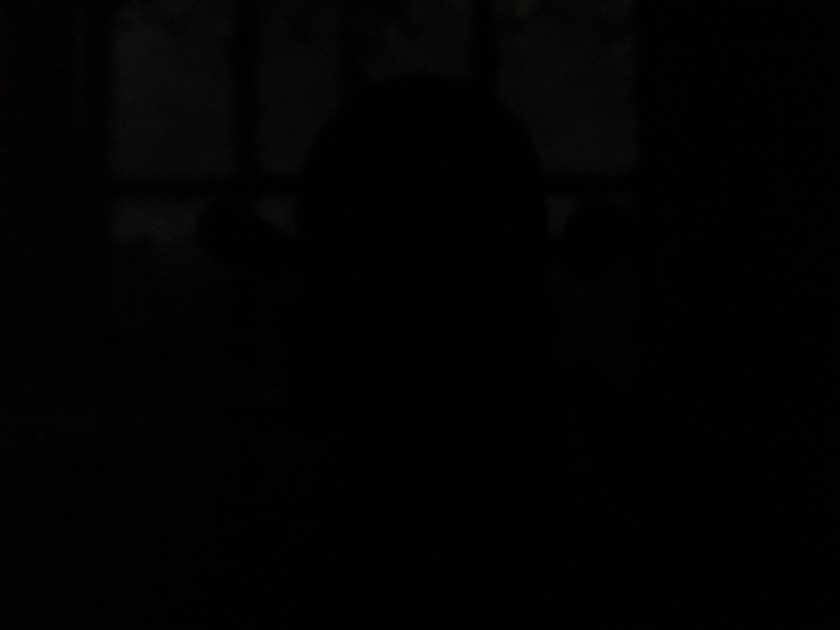@Frank Apisa,
Recycling the same stuff over and over again. Doesn't it tire you out?
I've had plenty of people tell me that I could be wrong about something like this. I've never had anyone explain WHY that I would be wrong about something like this. They dodge the question. This is because the truth is that there isn't an acceptable answer to this question.
Let's propose some blind guesses, as you put it, and I'll show how likely all of them are. For convenience sake, I marked these either "+", "-", or "?" due to their likelihood of happening.
(?) 1. UFOs from another dimension created everything. They came from outside this universe, and have machines that were able to terraform worlds, as well as artificially split or recombine matter, or generate (however, these critters are still created beings so this begs the question of where they came from)
(?) 2. Super psychics with godlike powers (sort of the type you'd see in a Star Trek episode). Unfortunately, the same problem of being created beings. Even if they were very powerful, powerful enough to make entire worlds with just their minds, there's the "elephants all the way down" problem. Created beings have creators. The only way out of this is a self-creating being.
(?) 3. A life form that attained godlike status, forming a stable time loop (see the film
Lucy). Unlike the first two, the time loop part makes it plausible, in that the self-creating being does in fact solve the how of their creation. However, there is still the matter of "where." You see, humans have lived on Earth since we started out. So a human who attained godhood would still have to create the Earth they lived in before evolving into a god. And...now I have a headache.
(?) 4. The view that the universe is eternal. Honestly, this neatly sidesteps the question of creation entirely, making most of the rest of this moot. It does however raise questions about how fully-formed planets exist.
(+) 5. A sentient cosmic force, such as the Tao, Dust (see
His Dark Materials), or the Force. This is perfectly fine because such an existence does not to breathe or exist on a planet, removing the need for a "where" event. Such does not even need a working universe. The thing about this one is that it has many of the traits of intelligent design while still not requiring one to subscribe to theism. This is classic pantheism, and perfectly fine by me.
(+) 6. Polytheism. Pretty much the same strengths of the one before. Intelligent design makes sense. Unlike the nonsense of an uncreated universe (which immediately must address the problem of shapeless void), intelligent design solves this. For the moment, it doesn't matter whether this is one God, many gods, or some cosmic force.
(+) 7. Monotheism. Honestly, the only difference between one God and many gods, is that with polytheism, you are subject to the whims of multiple deities. You may make sacrifices to the god of sea to have safe passage on a ship, but the god of winds decides you're ignoring her. You may make sacrifices to the god of war for victory, but the god of death wants your life. And you can't two-time them. Because of this, polytheism is problematic even if it were true. You would never be able to keep any of them happy. This is the main strength of theism, keep faithful to one God. The only problem is if you get mixed up and suddenly start worshiping the wrong god or a false version of God. There are definitely issues with monotheism.
(+) 8. Henotheism. Ah, the word nobody who isn't college educated in religious studies says, "what now?" Henotheism is polytheism with a center deity creating the others. None of these really seem to have any issues with the location of creation, the eternal timeline required to create something before time existed, and the sense of an ordered universe.
(-) 9. Lovecraft. Lovecraft's pantheon has all the hallmarks of polytheism, except for two major differences. First, these "gods" are evil. The problem with this is that they have no good reason to create anything in the first place, except to torture it. The second is the disordered state of these beings, where basically all of them think in alien terms. If this is the case, anything they create looks like this...

if it doesn't just look like this.

This is explained away in our world with its scientific rules and such by the notion that only when the stars are "right" do they come out of dormancy, and turn the universe to suit them.
(-) 10. Lastly, we have the idea that I am wrong. Okay, shoot. Explain why the universe doesn't look like one of those two images above? Without any intelligent design, things either DO NOT EXIST or they are shapeless weirdness.
Random causes create random effects. And
nonexistent causes create nonexistent effects.
Has [Science] Eliminated the Need for a Creator?
https://www.youtube.com/watch?v=nSaI0OaTLAU